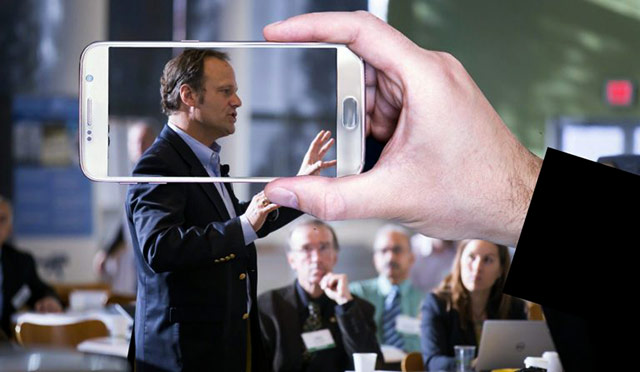All You Need is a Stage

“Tell me who your leader is and I will tell you what kind of company you are” - This is what I often say to companies. It is proven that a leader's personality and style of leadership creates the company’s corporate culture. Leaders influence everything and everyone in the company, not only employees, also customers and the general public.
In his TED Talk, Itay Talgam, Israeli orchestra conductor, presents 6 world famous conductors and makes comparisons between conducting and leadership. Later, he worked as “conductor of people” in government, corporations, and educational institutions. The main takeaway from this is that the best conductors are those that create the space for everyone to communicate whether it be the musicians and the audience, or the composer and the conductor. It applies to any situation - this communication creates a beautiful harmony.
It is a fact that 21st century leaders are not only good managers, they are good communicators and they should be the face and voice of their companies, employees, customers, partners, and all communities. That is why executive visibility is so important.
The CEO should communicate, not randomly, but strategically and based on the company's goals and objectives.
Here are my 7 main pieces of advice for CEOs to be seen and heard:
- Use only your strongest skills. If you are good at tennis, play tennis and not football. If you are good at wine tasting, use this knowledge and experience.
- Project the voice of what your company wants to say. All your activities related to visibility should be aligned to your business priorities and compliment it.
- Define success. Decide what success is for you. Putting it into numbers gives you concrete goals that help to guide you and give you a strong and clear target. That could be 5 media interviews in a year, and 3 conferences. Once you decide, then aim for those targets.
- Small talk is big talk. Invest time in informal meetings, feedback emails, and try to have more face to face meetings.
- Media relations is a priority. Be an opinion maker in your industry and use all media opportunities that come your way. Invest in media relations - it may be your best business move yet.
- Social media is mandatory. For a myriad of reasons. First and foremost, the audience expects to be able to have a human connection to you. Try to communicate your values, your company updates, your personality. People are expecting you to be a leader and a human at the same time.
- Measure your progress constantly. There is always room for improvement. Watch your videos, ask for feedback. Analyse your flaws and build on them.

Visibility is a tool to gain public trust, that is the new currency. In her TED speech, Rachel Botsman, trust researcher, in 2012 stated that, “Reputation is a currency that I believe will become more powerful than our credit history in the 21st century”. After almost 9 years, we see that trust has become the most important value for companies, brands, and individuals. A reputation survey conducted by Weber Shandwick in 2019, shows that global executives attribute an average of 58% of their firms' overall reputation to the leader who runs the organization.
It is hard to admit that we make choices based on Jeff Bezos or Steve Jobs, but humans trust humans and leaders/CEOs have a huge influence on the audience locally and globally.
We are in the 21st century. You are no longer able to sit silently and run a company. You are expected to be the face and voice of your brand. If that seems like an impossible task - give me a call.